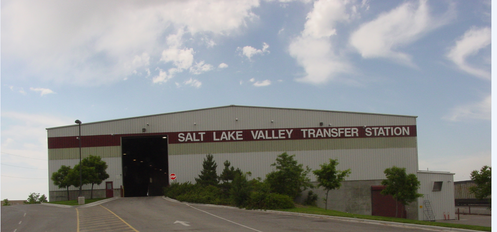|
As 2017 draws to a close, it’s worth looking back at the noteworthy events that have helped shape our county, and some of the initiatives my office is working on. Last year I wrote about issues I wanted to work on for 2017, which included intergenerational poverty, criminal justice, suicide prevention, and budget transparency. I’m pleased that we’ve made progress on each of these fronts, and I want to update you on each of them.  Intergenerational Poverty After learning as much as I could about intergenerational poverty and its impact on families in Salt Lake County this year, I asked my colleagues on the County Council for their support to launch a county task force to address the issue. With their support, the council-driven Intergenerational Poverty Task Force was started and is looking at the county’s role in empowering families to break out of the cycle of poverty. This group brings together directors from county entities like Human Services, Behavioral Health, Regional Development, and the mayor’s office, as well as representatives from the state’s Workforce Services and Human Services departments, local school districts, and more. This coalition will look at the current anti-poverty efforts within Salt Lake County and assess how we’re doing in addressing intergenerational poverty specifically. It’s vital for county and local leaders to lead this charge in our communities if we really want to make a difference empowering people to break out of the cycle of poverty. You can learn more about the state research behind intergenerational poverty here.
0 Comments
With the County Council’s budget deliberations now completed, the only remaining step is to hold a public hearing to receive public comment on the budget, and then take the final vote. Numerous complex and controversial issues were discussed this budget cycle, including the Mayor’s proposal to close the Salt Lake Valley Transfer station on January 1, 2018, as part of his 2018 budget.  Closing the transfer station outright in this manner would have a very sudden and negative impact on residents in South Salt Lake, Salt Lake City, and the cities/townships who are part of Wasatch Front Waste and Recycling District (Taylorsville, Magna, Kearns, Herriman, Holladay, Cottonwood Heights, Millcreek, White City, Copperton, Emigration Canyon, and the unincorporated areas). Wasatch Front Waste and Recycling District operates on a calendar year budget and their Board has approved and finalized the 2018 budget. The closure in January would have put their organization in a crisis mode since they would have had no time to properly prepare.
*Originally published in City Journals
We are in the midst of a public health crisis that has now reached epidemic status. An increasing number of Americans are dying due to prescription opioid overdose. This pervasive drug addiction afflicts more and more Salt Lake County residents, and costs millions of dollars in treatment and community impact. Far too often, someone will be prescribed opioids to alleviate chronic pain after an injury or medical procedure. It’s possible to become addicted in as little as ten days. Once addiction has taken hold and prescriptions are not accessible, the victims sometimes switch to heroin, which is far cheaper and more accessible on the streets. First, some key stats… 91 Americans die every day from an opioid overdose. That number totaled more than 33,000 in 2015, roughly half of which involved opioids prescribed by a doctor. Since the 1990s, we’ve seen a shocking increase in opioid deaths. In fact, the number has quadrupled since 1999. Utah is near the top for opioid-related deaths (ranking 4th highest in 2014, with six people dying per week on average). For that same year, Utah also had the highest rate of opioid prescriptions, at 41.6 percent. Deaths caused by prescription pain medication in Utah increased roughly 600 percent between 1999 and 2017. I believe the number one role of county government is to provide for the public safety of our residents. That includes our county jail to incarcerate criminals, as well as drug treatment beds to empower people to break free of addictions that drive them to crime in the first place. The opioid epidemic has hit hard in the state Utah, and in Salt Lake County. Thankfully, two of my colleagues on the County Council are leading out on the issue to find solutions. Council Chair Steve Debry, and Councilmember Jenny Wilson, with the unanimous consent of the Council, created the Salt Lake County Opioid Task Force. This group pulls together behavioral health and criminal justice experts in Salt Lake County to find effective solutions to this crisis. In addition to potential reforms in drug treatment and resources, another option Salt Lake County is exploring is litigation against opioid manufacturers. A number of counties and states across the country have already moved forward with litigation. The central claim rests on the disparity between what drug companies said about their opioids, and what the real effect is. They have also neglected to report suspicious orders, which was a requirement by the Drug Enforcement Agency. Marketing messages that opioids were safe for chronic pain or for long-term use, and are generally not addictive, were clearly false. I’m anxious to see where this option goes, as we need every possible tactic to fight the impact of this epidemic. This is a massive challenge that has worsened dramatically in recent years. I’m grateful to my colleagues on the council for their leadership, as well as the hard work of behavioral health, law enforcement, and treatment providers throughout the county. Though daunting, as with any task I believe that an open, collaborative approach that brings together key partners will ultimately yield success. |
Aimee Winder NewtonAimee Winder Newton has served since 2014 and represents Taylorsville, Murray, West Jordan, and West Valley City on the Salt Lake County Council. She was a former 2020 Republican candidate for Utah Governor and was the first woman elected as chair of the Council. Aimee works tirelessly to defend the quality of life in Salt Lake County while protecting tax dollars... [read more]
Categories
All
|
| Aimee Winder Newton | aimee winder newton: County Council district 3 |


